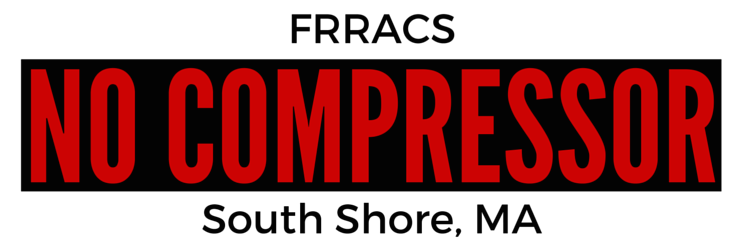For Immediate Release: DEP Presiding Officer Recommends that the DEP Issue a Final Approval for Enbridge’s Air Quality Plan
/FOR IMMEDIATE RELEASE: Thursday, June 27, 2019
Media Contact: Alice Arena, nocompressor@gmail.com
DEP Presiding Officer Recommends that the DEP Issue a Final Approval for Enbridge’s Air Quality Plan
Weymouth, Mass. (June 27, 2019) - Today, DEP Presiding Officer Jane Rothchild turned her back on the people of the Commonwealth by recommending that the Department of Environmental Protection (DEP) issue a final permit for Enbridge’s air quality plan. By issuing a recommendation of approval, Rothchild makes clear that the DEP does not care about public health, the environment, or the agencies charge to protect both.
After four full days of testimony, it became blatantly clear that the DEP has not upheld their mission to “ensure clean air, land and water” for the Commonwealth. The Fore River Basin, where the compressor station would be located, is home to ten industrial facilities. The communities surrounding these facilities are continuously exposed to dozens of toxic pollutants, including many carcinogens. The DEP stated many times during their testimony that they do not account for background emissions when reviewing permit applications. This is a policy they have followed for thirty years. The background pollution exists, whether or not DEP acknowledges it. It is unacceptable that the DEP allows polluters to release additional toxic emissions into the air without considering the impact that those cumulative emissions will have on the surrounding area.
While the Presiding Officer must use the law and the DEP regulations to make her determination and while she must consider the arguments of both sides, it has been abundantly clear that the arguments of the experts for the Towns of Weymouth, Braintree, and Hingham, the City of Quincy, and all petitioners are offhandedly dismissed; while the unsubstantiated claims of Enbridge go unquestioned. Will the compressor be noisy 24/7, 365 days per year? Yes. Can we prove it? Yes. Will the compressor emit malodorous smells? Yes. Can we prove it? Yes. Will the compressor present a clear and present danger to anyone within ¼ mile from its placement? Yes. Can we prove it? Yes. Will the compressor add to the carcinogenic air toxics load in the Basin? Yes. Can we prove it? Yes. Will the compressor detract from our enjoyment of the land, water, and air in the park at King’s Cove? Most definitely. Can we prove it? You bet. All of these issues and more are part of the regulations for air pollution within the DEP’s purview. But, once again, the Presiding Officer chose to ignore regulations that do not fit the agenda of the polluter.
Presiding Officer Rothchild states, “After reviewing the entire administrative record, I find that the air permit does not violate Massachusetts statutory and regulatory provisions, as alleged by the Petitioners.” Data collected by DEP show elevated levels of pollutants in the Fore River Basin, including the carcinogen 1,3-butadiene. The data must not be ignored. Reports from Enbridge show that the compressor will release more of this powerful carcinogen, along with multiple other Volatile Organic Compounds that already exist over DEP Ambient Air Limits and Threshold Effects Exposure Limits such as benzene, formaldehyde, toluene, and carbon disulfide. Why establish limits if, in the end, the violations merit no consideration in the approval process?
Giving recommendations such as extending the time that Enbridge has to notify the Towns of a planned blowdown (releases of hundreds of thousands of metric tons of methane and fracking toxins) in no way mitigates the effects of these noxious releases. Unplanned blowdowns will have no notification and are a regular situation with compressor stations. Again, no thought is given to the citizens, only to Enbridge.
In her conclusions, Presiding Officer Rothchild states, “I recommend that he (the Commissioner) direct the MassDEP Bureau of Air and Waste, Air Permitting Division, and the Office of Research and Standards to review MassDEP’s “long standing practice” of requiring air toxics dispersion modeling to assess the ambient concentrations caused solely by a source’s emissions, without including background levels, to determine whether this practice is outdated, and consider developing a new practice that requires sources to include site-specific background levels of air toxics as part of a source’s air dispersion modeling requirements. Such a practice would likely reduce the levels of pollution in the ambient air and better protect the public health and the environment.”
Sadly, this will not help the citizens of the Basin and is unlikely to help many other communities in the Commonwealth fighting toxic trash burning power plants, compressor enlargements, or LNG storage facilities. We simply cannot wait another ten years for the DEP to catch up to the reality of downgraded air in Massachusetts.
The Fore River Residents Against the Compressor Station (FRRACS) call on Commissioner Suuberg and Governor Charlie Baker to do the right thing for the citizens of the Basin and for the citizens of the Commonwealth. Deny the final Air Quality permit and clean up our air.
Alice Arena, Executive Director of FRRACS, states, “The battle is not over. The fight will not end until we have won the war and our rights to clean air, land, and water as guaranteed by Article 97 of the Constitution of the Commonwealth of Massachusetts. We have ceded these rights for far too long. That day has come to an end.”
###

